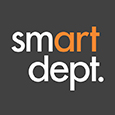Sr. Copy writer
As a Sr. Copywriter for our client you are responsible for the conception and execution of innovative copy for integrated, cross channel initiatives including large web initiatives, online advertising, digital marketing, print advertising and/or direct mail. You should possess sharp writing skills and have the ability to understand more than one voice; adapting your writing skills as necessary to long form or headlines. You should be able to partner with art directors and designers to ensure the art direction supports the concept.
You must be able to create a range of concepts for each project, be self-motivated with a positive attitude and have strong communications skills. Copywriters at our client must have at least 6+ years of professional writing experience in an advertising or interactive agency.
You must also have strong experience working on large cross channel and/or direct marketing initiatives including rich media, web, direct and print. Experience with online and offline media is preferred. Experience with online media is a must.
Freelance Information Architect (city/north suburbs)
Responsibilities:
Design the UI architecture, interface, interaction flow and aesthetics of web applications and web sites
Develop conceptual diagrams, wireframes, prototypes, visual mockups and graphic assets Develop and maintain detailed user-interface specifications
Build upon and expand established style guides and UI patterns
Present design work to product and executive teams for review and feedback
Promote usability best practices
Qualifications:
Experience as a user experience designer, interaction designer, user interface designer, information architect, or similar role
An online portfolio or samples of work demonstrating related experience
Experience working in a collaborative team and working directly with developers for implementation of designs
Fluency in best practices for web-based information architecture and design, as well as strong knowledge of usability principles and techniques
Familiarity with the technical considerations needed when designing for dynamic AJAX-based web 2.0 applications
Visual design expertise demonstrated through mockups and style guides
Excellent communication, presentation, and interpersonal skills
Proficiency in a variety of design tools such as Photoshop, Illustrator, Fireworks, Visio, and Dreamweaver
Ability to prototype in HTML, JavaScript, CSS, and/or Flash is strong plus
Ability to create illustrations for stylized graphic artwork and icons is a strong plus
Demonstrated history of acquiring user data (e.g., conducting usability studies, performing user research)
Freelance/Full Time Flash Developer (city/northwest suburbs)
This position will develop lightweight multimedia/video applications for the web using object oriented Actionscript 3. Familiarity with 3rd party libraries such as Tweenlite and Bulkloader would be highly beneficial. Maintain a knowledge base on Flash-based technologies and solutions in the market. Indirectly manage the different team members activities to ensure the project success
Requirements:
Strong understanding of object oriented programming in AS3 using Flash or Flex
At least 4 full years professional work experience programming applications with AS3
At least 4+ years experience hand-coding Flash
• Experience with Rich Internet Applications, Macromedia Flash, particularly technical and coding aspects such as Object Oriented Action Script 2/3, Flash Remoting, Data Binding, Components, etc. required. Flex or Lazlo experience a plus
• Must have extensive knowledge of Action Script 2.0/3.0, Script Based Animation, Object-Oriented Programming, Flash Video (Progressive or Streaming), Event Driven Programming and XML
• Experience with Design Patterns, Advanced Object-Oriented Programming, MVC Architecture such as Cairngorm, Web Services, Flex and Backend/External System Integration a plus.
• Experience version control systems
• Experience with Analytics Solutions (Omniture, WebSideStory, WebTrends)
• Image production techniques using Fireworks or Image Ready
• User Interface Design, Information Architecture, graphic design experience a plus
• Understanding of good design principles and ability to adhere to complex design specifications during implementation
• Demonstrated ability to accurately estimate and scope development work
• Strong attention to detail.
• Strong written & oral communication as well as presentation skills.
• Team management skills.
Beneficial skills
Tweenlite
Video Technologies
OOP Design Patterns
HTML/CSS
JSON
XML
Firebug
Javascript
Server Side Languages (ASP.NET)
Direct Hire: Sr. Internet Designer (north suburbs)
Job Functions:
1. Collaborate with Senior Internet Art Director and website team (Editorial, Internet Business team, Information Architecture, Internet Marketing and Merchandising, MIS) to determine company’s ongoing website design goals and initiatives.
2. Based on initiatives, identify specific projects and project priorities.
3. Assess full scope of any project by procuring information from all relevant departments. (Such as Merchandising, Direct Marketing, MIS, etc.)
4. Determine appropriate design approach for projects based on objectives, information gathered, available timeframe/budget, and current known leading themes in advertising, catalogue, stores, etc.
5. Present design recommendations (visual and content) to Senior Internet Art Director for feedback, further collaboration, or approval.
6. Develop website work schedules with internal and external project teams.
7. Manage the design implementation process, collaborating with internal web production group, or external sources where necessary (i.e. writers, photographers, producers, etc.).
8. Ensure that new design programs are produced at standards that uphold/elevate the company’s brand identity.
9. Communicate the status of projects to Senior Internet Art Director and internal teams.
10. Manage design projects within known budget.
11. Maintain an awareness of the housewares industry, competitors and cultural trends that affect both.
12. Provide excellent service to both internal and external customers whether through direct contact, over the phone or through written communications.
13. Maintain an awareness of loss prevention, security and safety following the guidelines provided by the Human Resources Department.
Web Designer
Looking for a talented Interactive/UI Designer. Requirements for the position MUST include:
Interactive Designer w/UI Experience
High Proficiency:
-Adobe CS (Photoshop, Illustrator, InDesign)
-Adobe Flash
-Handwritten HTML & CSS
-Experience creating Information Architecture as it applies to web design
and to application design (especially wireframing)
Some Profiency:
-Experience developing in a .Net environment
-JavaScript (and JavaScript libraries such as jQuery)
-ActionScript 2 & 3
-Adobe After Effects
Requirements
-Bachelor’s Degree
-Agency and large brand experience necessary






